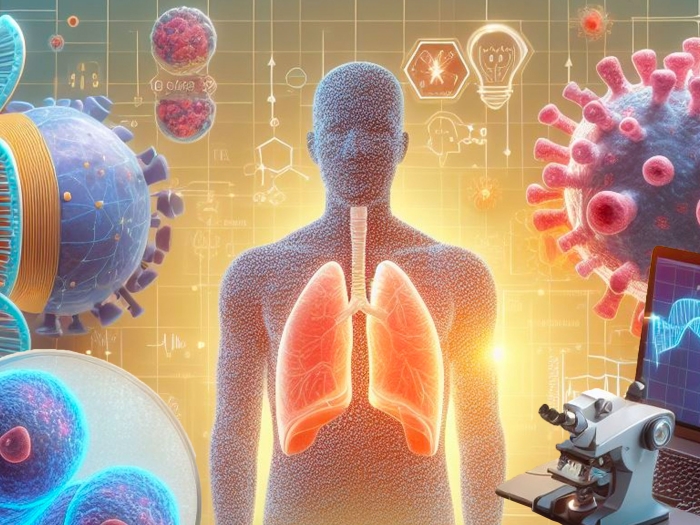Health professionals have a flexible path to earn a first-of-its-kind degree.
12:10 PM
Author |

This article was last updated on November 8, 2022.
As a senior director of clinical informatics at Pfizer and a busy mom of two, Allison Brenner, Pharm. D., wanted to expand her education, but a residential program was out of the question.
Considering the options, she determined her aptitude, career goals, and current work focus on using analytics to improve internal medicine outcomes, weren't going to be well served by an MBA or an MPH. That's when an internet search led her to the HILS-Online MS program at the University of Michigan Medical School.
"I was really looking for a program that would allow me to combine my interests in informatics, user centered design, education, and healthcare improvement," said Brenner, "I learned a little about implementation science and how it could be used to improve HIT based tools and knew I wanted to pursue something in that area."
Launched in 2021, the Health Infrastructures and Learning Systems Online master of science program (HILS-Online MS) is a purpose-built online degree offered by the U-M Department of Learning Health Sciences. It's designed to provide health professionals like Brenner with the knowledge and methods they need to address social and technical challenges in making health improvements routine.
The program is a part of an international movement towards learning health systems, which are organizations and/or networks that continuously self-study and adapt using data and analytics to generate knowledge, engage stakeholders and implement behavioral changes that transform practices.
The HILS-Online MS courses are taught by the same faculty who bring their expertise in implementation science, social science, quality improvement, data and knowledge representation to the residential HILS program. Like all HILS professors, Karandeep Singh, M.D., MMSc worked with a learning architect to revamp his residential course, Exploratory Data Analysis for Health, specifically for online students.
SEE ALSO: HILS-Online learner Q&As playlist
"The online classes make available the full set of resources that students need to succeed in each course," explained Singh. He goes on to stress that students love the program's flexibility that is designed to provide support and foster community. He said students are "guided by a timeline centered around when assignments are due…can asynchronously work through the modules and engage with other students and instructors along the way."
According to program director Caren M. Stalburg, M.D., M.A., addressing students' time constraints was a priority for the department when envisioning the flexible HILS-Online MS structure. The mix of community engagement with asynchronous class offerings allows students to tailor their degree according to their personal learning style and goals. Freed from the limits of a residential course, this custom approach means students can complete the degree in 12 months or spread their coursework out over the span of three years.
Brenner feels that the versatility of the HILS-Online MS program is the key to success given her challenging schedule. An added bonus is how class content applies to her day job and bolsters her leadership opportunities. "I have derived the most benefit from the implementation science course," observed Brenner. "This has become an area of interest for our organization and due to my experience I have been able to help lead our group in developing skills and prioritizing learning of these concepts."
A benefit Brenner did not expect was the camaraderie among students. "
What has surprised me the most would be the fantastic people I have met and the close friendships that I formed with my classmates," described Brenner, who goes on to underscore the valuable network she expects to continue even after her spring 2023 graduation. "We truly forged a tight knit bond despite all of us working online from all over the country… most of our initial cohort has graduated, yet we still keep in touch."
The diversity of participants from across the nation is a plus, adding a variety of perspectives to the idea-sharing and feedback opportunities among students, faculty and staff. Beyond the normal office hours and discussion boards, students participate in three in-person institutes on campus where they can meet with faculty and peers for various learning activities. Stalburg notes that these meetings serve as an opportunity for participants to brainstorm their Learning Cycle Capstone projects, where students partner with a faculty member and focus on a specific problem of interest.
Having designed a long-running massive open online course for Coursera, Stalburg is no stranger to the reach of online learning. She recalls the need for HILS-Online emerged over the residential program's first four years. The majority of students were not typical full-time students who went from undergrad directly into a master's program, but those already working in health care or social service fields.
Stalburg described how this flexible online master's degree will cast a wide net for those looking for a U-M experience.
"Not only is the HILS-Online MS a one-of-a-kind degree providing graduates with combined skills in improving health systems, quality and safety, informatics and implementation; it is also a rigorous University of Michigan degree available without the need to relocate to Ann Arbor," said Stalburg.
This unique HILS-Online MS approach makes the program a particularly exciting opportunity for working professionals looking to apply interdisciplinary skills and leading edge science to create meaningful change in the vast world of health care systems.
Prospective students are invited to attend upcoming virtual information sessions before the June 1 application deadline.

Explore a variety of healthcare news & stories by visiting the Health Lab home page for more articles.

Department of Communication at Michigan Medicine
Want top health & research news weekly? Sign up for Health Lab’s newsletters today!





